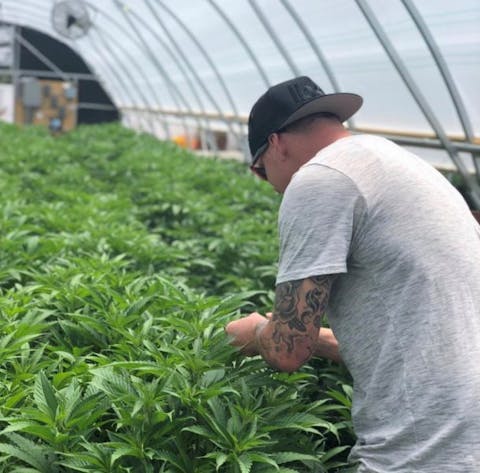The cannabis industry has grown by leaps and bounds over the years, with many states legalizing its use for recreational and medicinal purposes. The legalization has seen more growers and retailers of the plant and its various derivatives come up, and revenues from the industry have skyrocketed. Sean Smutny, a leading entrepreneur in the cannabis industry, has seen first-hand its growth, having been part of it for fifteen years.
Sean is the co-founder of Truth Enterprises and its Sales Director in California. Truth Enterprises deals with the cultivation, manufacturing, and distribution of cannabis. Today, Truth Enterprises is now known as one of the pioneers in the industry. He shared his insights on the future of the industry.

Sean Smutny
Q: Has the legalization of cannabis changed its perception in many people’s minds?
Yes, it has. Long gone are the days where any cannabis user, medicinal or recreational, had to deal with a great deal of social stigma. Though people are better informed today, there is still a long way to go broadly speaking. Public opinion on it has changed as more people recognize its innumerable uses in medicine and other sectors. More people are seeing the benefits that come from using it recreationally and medicinally and are more receptive to its derivatives such as CBD that is used in pain management and reduction of stress.
Q: What effect has the legalization had on the industry?
With cannabis legal in some states, the industry’s revenue has increased. For instance, it is estimated that during this year’s 4th of July festivities, about $400 million worth of cannabis and its products were sold!
There are now more cannabis products than there were before, as more people are researching and coming up with more beneficial products. In addition to edibles and the medical use of CBD, cannabis-infused beverages will soon be popular, with beverage companies considering creating them. Cannabis is now used in skincare, with hemp and CBD being part of the ingredients in skincare products, such as Avon’s popular CBD-infused facial oil. Some luxury spas also offer CBD treatments that incorporate CBD into their massages.
Q: How do state and federal legislation affect the cannabis industry?
Currently, cannabis is legal in some states (either for recreational or medicinal use). Still, it is illegal at the federal level. This clash in legislation can be confusing. Each state’s cannabis regulatory framework is often in conflict with other states and federal law. These conflicting regulations have forced cannabis companies to be vertically integrated. We have to integrate all the three separate businesses involved in cannabis into one business. First, they deal with the agricultural aspect of growing and harvesting the plant. You have to note that since it can’t be transported across state lines, cannabis has to be grown in the same state that it is sold in, which is economically inefficient. Second, the companies have to deal with the processing of the plant after harvesting into products such as oils, edibles, creams, and so on. Third, there’s the retail part of the business to ensure that the packaged goods reach the consumer. In a less regulated environment, these three different business lines would be in separate companies since they require different areas of expertise. This would encourage the growth of more companies to deal with each line of business separately.
Q: What is in the future of the cannabis industry?
We have a long way to go in the industry; we have only scratched the surface. More growers are researching new strains of cannabis, and we hope to see them in the market soon. Researchers in the medical industry are looking into the medicinal use of cannabis, including its effectiveness and safety. More scientists are studying the use of cannabinoids in things such as pain relief, appetite stimulation, and control of nausea. They are also looking into safer ways of administering them, including use to help alleviate symptoms of epilepsy.
There is a great deal of untapped potential within the cannabis industry. From eco-friendly products and solutions to medicinal and recreational use, the future is indeed a promising one.




